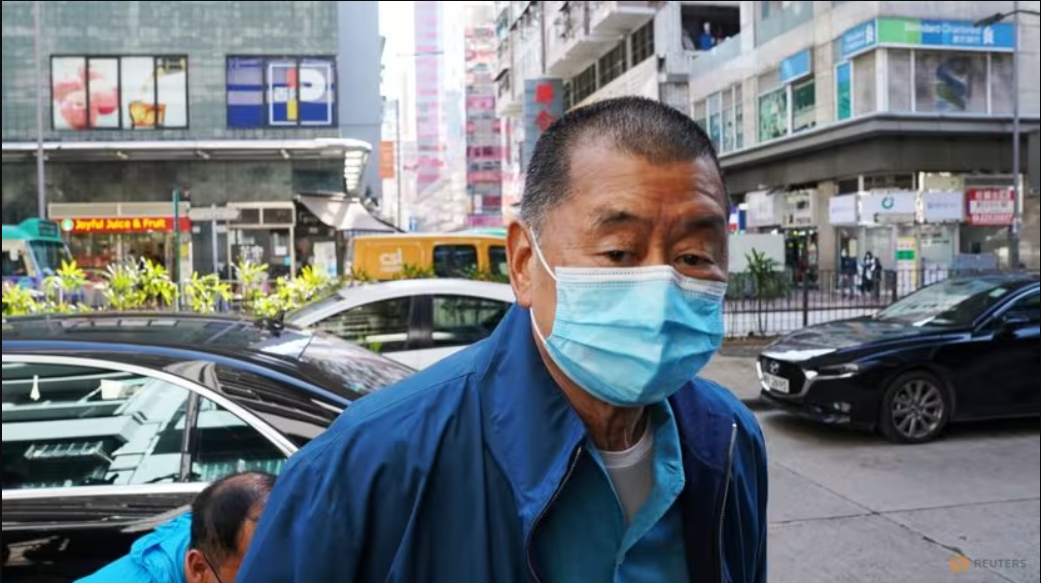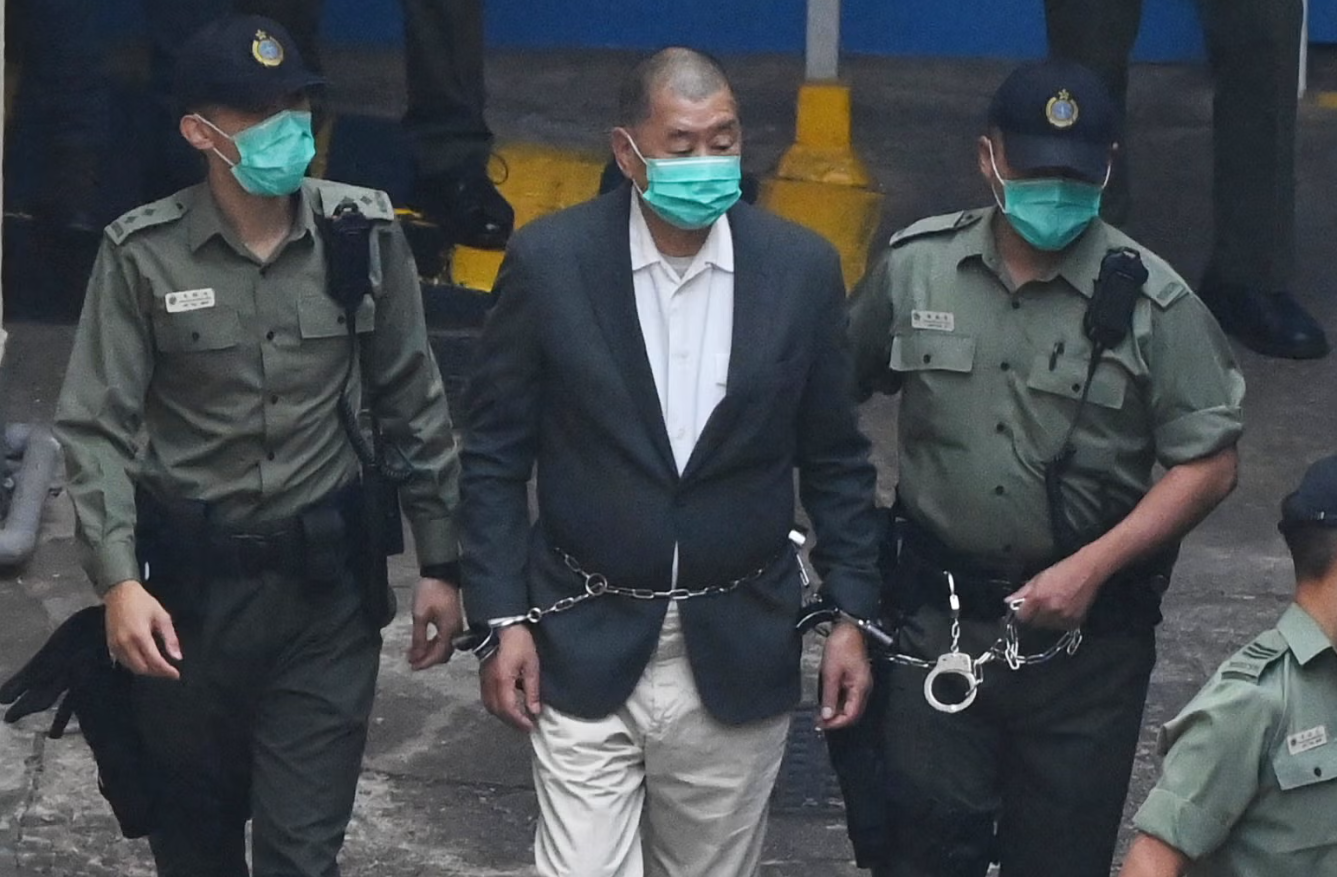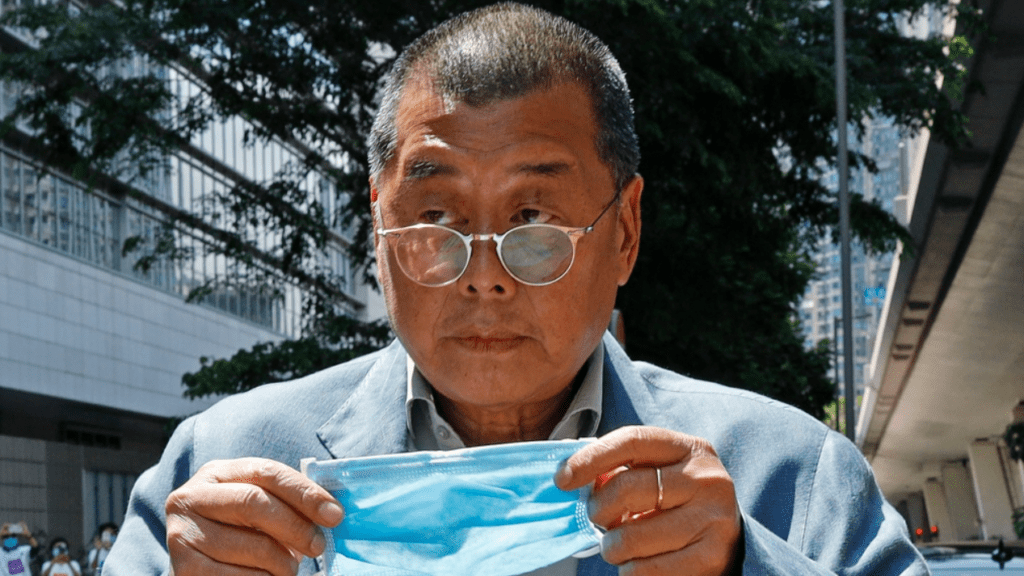Hong Kong’s media mogul, Jimmy Lai, renowned for championing the city’s pro-democracy movement, marked his 76th birthday behind bars in a high-security prison earlier this month.
Imprisoned since 2020, Lai faces a significant trial, confronting charges related to his involvement in Hong Kong’s democracy protests and the closure of his pro-democracy newspaper, Apple Daily, in 2021.
Lai, a vocal critic of China’s leadership, entered the courtroom for a trial that could reshape Hong Kong’s legal landscape.
Charged with colluding with foreign forces under the national security law and sedition, he could face a life sentence if convicted.


The trial, anticipated to last at least 80 days, is the most prominent prosecution of a Hong Kong media figure since the city’s handover to China in 1997.
Wearing a blue dress shirt and grey suit, Lai acknowledged supporters as he entered the courtroom, underscoring the global attention on his case.
Prosecutors argue that Lai’s Apple Daily articles violated the national security law by advocating for overseas sanctions against Hong Kong’s leaders, charges he denies.
The national security law, enacted after the 2019 protests, has faced criticism for suppressing Hong Kong’s freedoms
Lai’s trial, like previous national security cases, lacks a jury and is overseen by three judges appointed by Hong Kong’s leader.
Attempts to secure representation by a leading British human rights lawyer have been thwarted, prompting a separate legal challenge.
Once an outspoken figure, Lai has been relatively silent since facing multiple prosecutions.


His son, Sebastien Lai, emphasized his father’s resilience but expressed concerns about the risks associated with his advanced age and confinement in maximum security.
Lai’s international standing has led to lobbying efforts for his release by his son, who met with British Foreign Minister David Cameron.
Cameron expressed grave concerns about the case, echoing the U.S. State Department’s call for Lai’s immediate release and the release of others defending their rights.
Chinese authorities have condemned Western criticism, asserting Lai’s role in destabilizing Hong Kong.
The trial has drawn condemnation from human rights organizations, with Amnesty International highlighting the decline of the rule of law in Hong Kong, calling for Lai’s unconditional release.
Lai’s journey from poverty to wealth mirrors Hong Kong’s modern history. Initially arriving as a poor immigrant, he built a fortune through the successful clothing chain Giordano.
However, Lai’s political awakening during the 1989 Tiananmen Square crackdown led him to become a media tycoon, founding Apple Daily in 1995.
Apple Daily, known for its bold journalism and pro-democracy stance, faced closure in 2020 following Lai’s arrest for collusion with foreign forces.
The subsequent raid and closure sent shockwaves through Hong Kong’s media landscape, with smaller outlets also shutting down.
As Lai’s trial unfolds, it symbolizes a pivotal moment for Hong Kong’s future, impacting media freedom and the rule of law.
Queensland Floods: Cairns Airport Submerged, Crocodiles Seen After Rainfall

